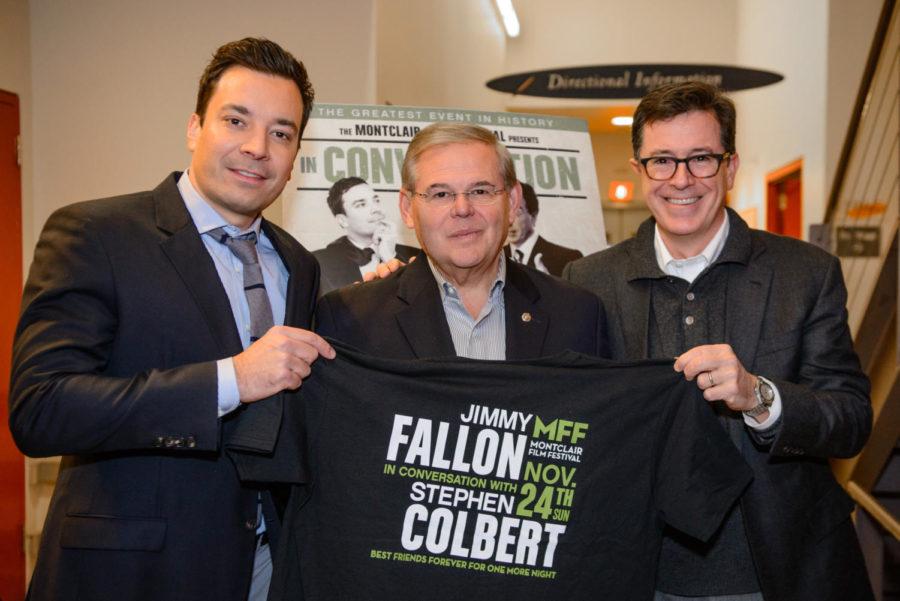Hays: More diversity is needed in late-night television
Photo Courtesy Wikimedia Commons
Jimmy_Fallon_and_Stephen_Colbert_November_2013.jpg
January 5, 2018
Throughout media and society, people today are always talking about diversity and how we need more of it or about how far we’ve already come in terms of diversity.
Most people believe that more diversity is crucial, yet there is still a huge lack of it throughout aspects of the media, especially in television.
If you’re looking for an example that proves the absence of diversity in the media, just tune into any late-night television show the next time you are relaxing before bed. Maybe you will come across “The Tonight Show Starring Jimmy Fallon,” “Late Night with Seth Meyers,” “The Late Show with Stephen Colbert” or “The Late Late Show with James Corden.”
What you will notice, or maybe won’t since it is only typical, is that most of these late-night shows star middle-aged, straight white males.
If you want to see diversity in television, then a late-night show is not the place for you.
While there are late-night show hosts that are not straight, white middle-aged men, those hosts are not present on the largest and most popular channels. NBC stars Seth Meyers, CBS stars Stephen Colbert, ABC stars Jimmy Kimmel and those are only a few examples.
Seemingly, it doesn’t seem to be a huge deal that white men run late-night talk shows. Working as a television host late at night is usually more comedy than politics and is pretty light-hearted. Nothing that could give the hosts power to lessen the rights and freedom of minorities.
On a small scale, one white, middle aged straight male television host is no big deal. The problem with television hosts today is that 90 percent of them are white, with only a small portion of that 90 percent being female.
As a young child, seeing show after show featuring white, male hosts engrains into the brain that all television hosts are white men. People like to create role models. For anyone that is not white and male aspiring to be a television host, they would see a field with little to no role models for them to look up to.
Wanda Sykes, an African-American woman, previously had a late-night talk show on Fox. Her show, “The Wanda Sykes Show,” only lasted one season due to a lack of views and popularity. Her show started off very strong but lost popularity as it went on. Sykes hardly ever had promotions for her show and this could very well be the reason for its low viewership.
Chelsea Handler, a white woman, starred in her own late-night talk show for seven years, from 2007 to 2014. Today, she is featured in a new talk show, “Chelsea,” on Netflix. She began her Netflix talk show in 2016, and this show is ending after the second season that is currently on Netflix.
While Handler was named one of the 100 most influential people in the world by Times in 2012, most people still have no idea who she is.
Both of these women would be and were successful talk show hosts, yet they are nowhere near as well-known as all the white, male hosts. There are plenty of qualified people in the world that are not white or male with the dream of being a star on late-night television.
There should be more diversity in all aspects of television. Late-night shows are a great place to start.
















